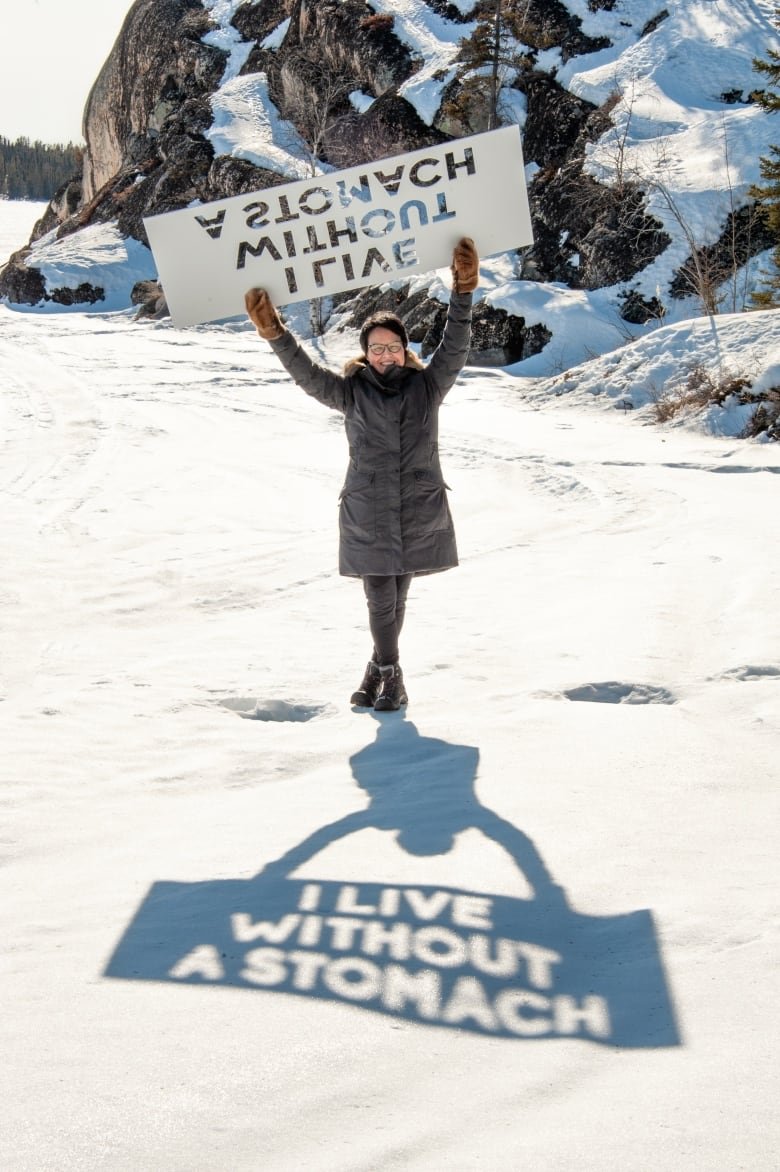It took just hours for Lianne Mantla-Look, a TÅı̨chÇ« citizen from BehchokÇ«Ì, N.W.T., to go from being a nurse to a patient.Â
Mantla-Look was diagnosed with stomach cancer in 2015. Now, she’s telling her story in recognition of Stomach Cancer Awareness Day on Saturday, and sharing advice for others navigating the medical system.Â
She’s now been cancer-free for nine years, but she still recalls how getting a diagnosis was a challenge. Â
It started with gastrointestinal troubles that Manta-Look said were unusual for her. When her symptoms persisted after six months of adjusting diet, blood work, and consulting a nutritionist, her doctor ordered an endoscopy.Â
Her test returning positive, but the surgeon said Mantla-Look was too young for colon cancer and that her test was likely wrong. That lead to another six months of symptoms before she could see a gastroenterologist. More testing confirmed she had cancer.Â
“My worst fear was confirmed,” she said.Â
The treatment? Removing her entire stomach.Â

“Which was something that I had no idea you could live without,” she said.Â
Now, she lives with constant changes to her diet and fluid consumption, for example, by having to eat every few hours.
She said that working in the medical field as a registered nurse gave her the confidence to advocate for herself, but others with less experience but face greater challenges.Â
“For the average Indigenous person, I think that given our long history of being marginalized, dealing with potential biases from health-care providers, it’s definitely a barrier to access and care,” she said.
Something as simple as language, she said, could present major obstacles for those who don’t have access to interpreters.Â
Her advice is for patients to speak up and ask for the care they need and deserve.  Â
Mantla-Look is spending Stomach Cancer Awareness Day in Yellowknife. The lights at the N.W.T. Legislative Assembly will be periwinkle, the colour for stomach cancer awareness. Â

Saturday November 30th is Stomach Cancer Awareness Day. Lianne Mantla-Look is a registered nurse originally from BehchokÇ«Ì. She was diagnosed with stomach cancer in 2015 and had her stomach removed. She joined Shannon Scott to talk about her journey.

